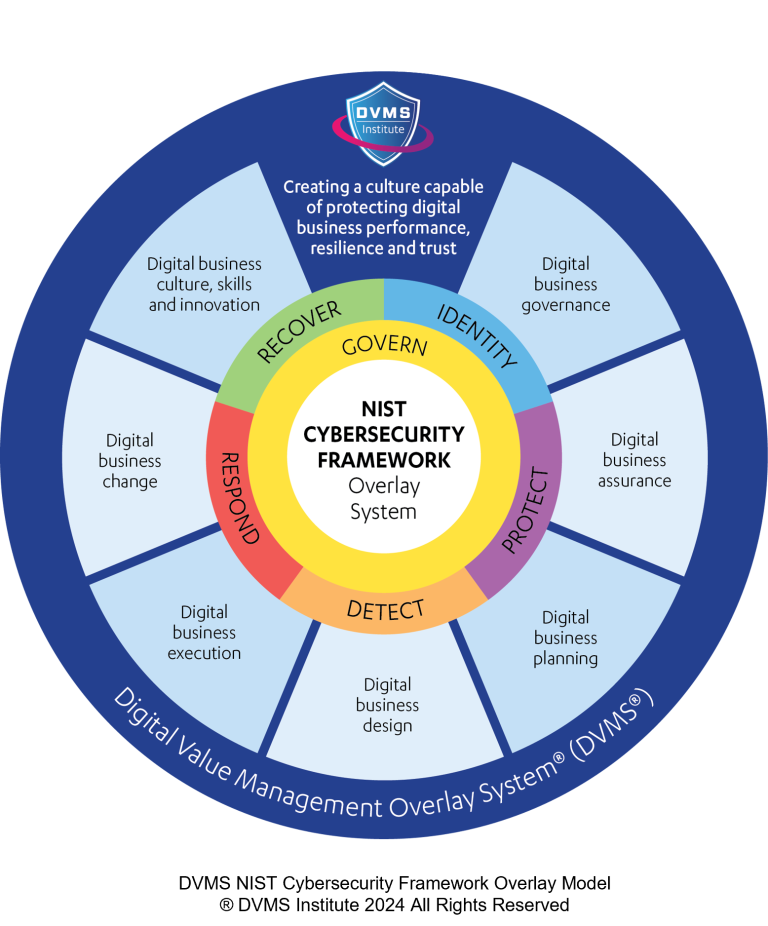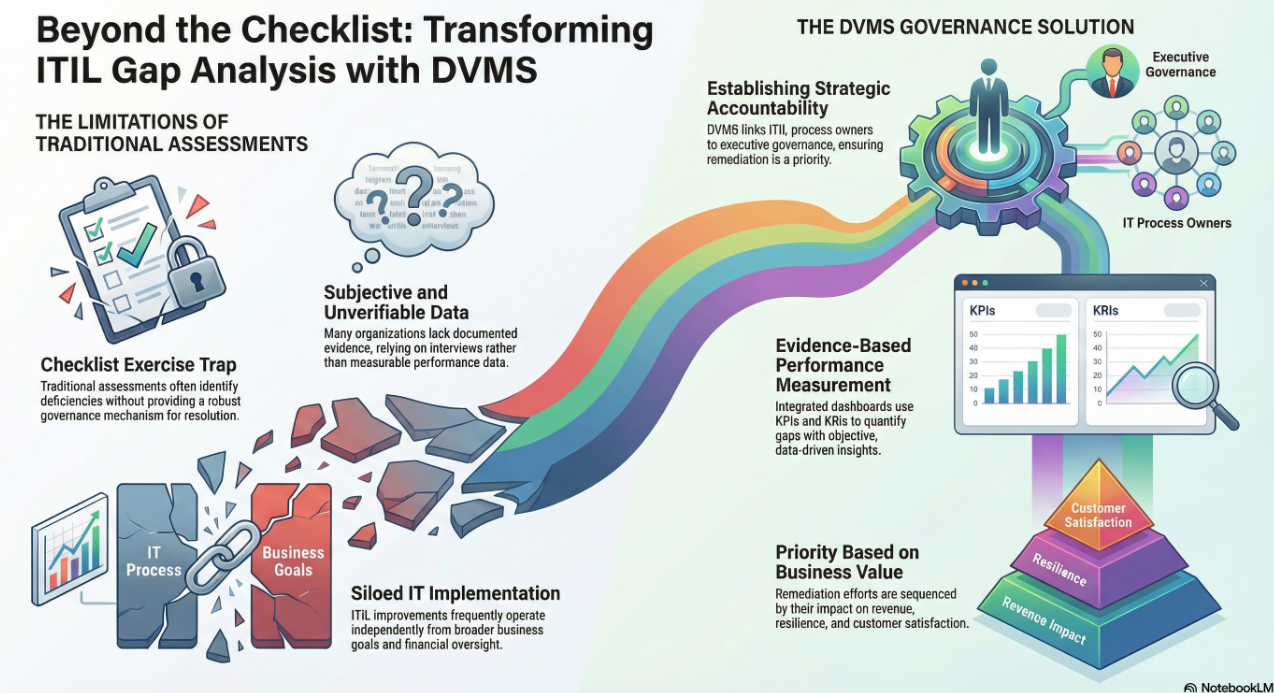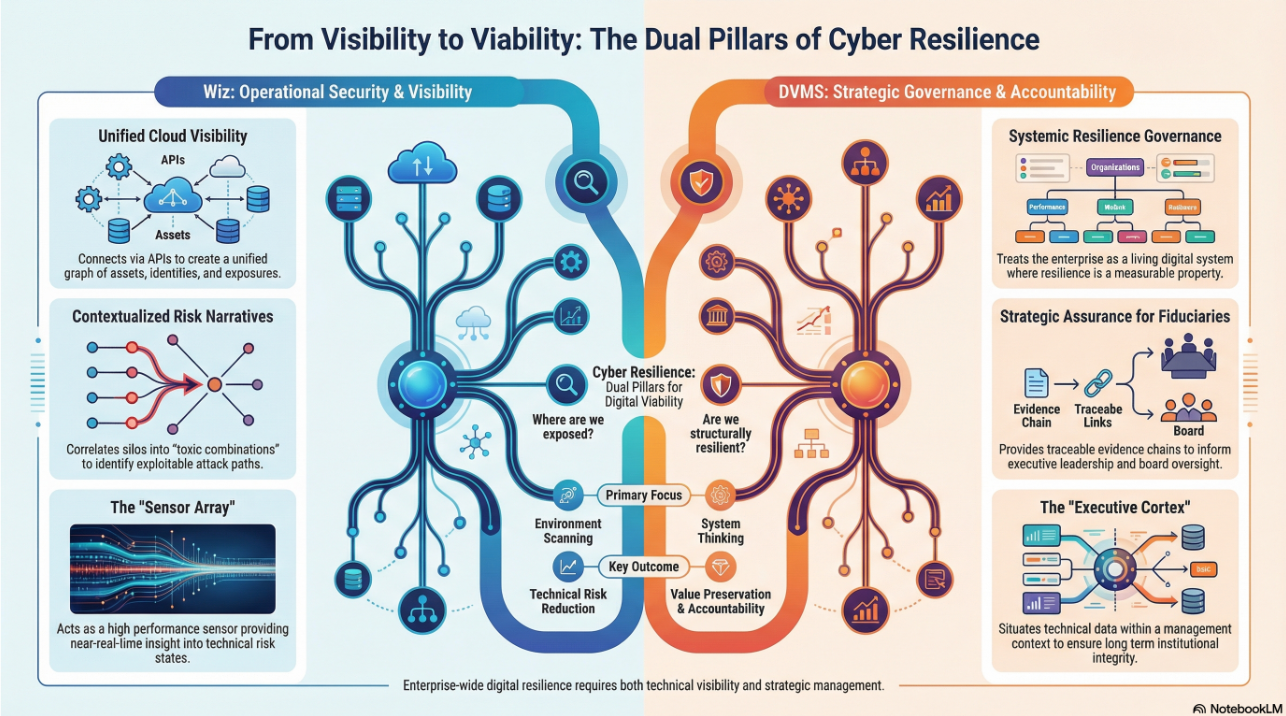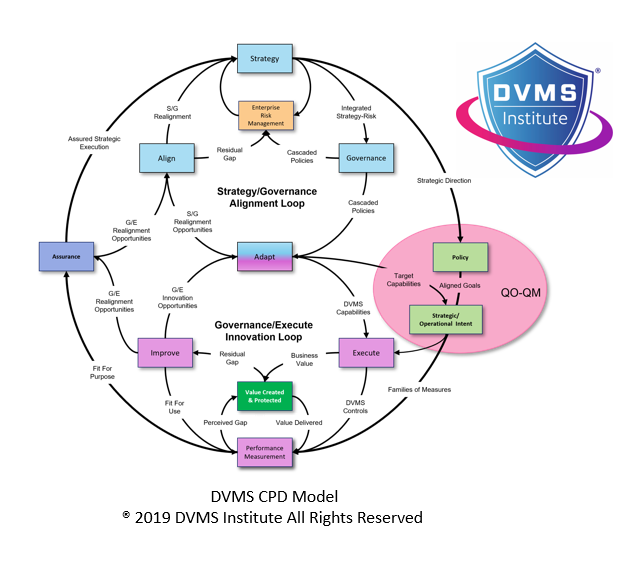Using Five Quality Management Principles to Justify Cybersecurity Risk Management Investments
Rick Lemieux – Co-Founder and Chief Product Officer of the DVMS Institute
Cybersecurity risk management has become critical to organizational success in today’s digital age. However, allocating resources to cybersecurity risk initiatives can be challenging, especially when competing funding demands exist. By leveraging quality management principles, organizations can build a compelling case for investing in cybersecurity risk management.
Quality management, at its core, is about meeting customer expectations and delivering products or services that are fit for purpose. Conversely, cybersecurity risk management protects an organizational digital asset from threats and vulnerabilities. While these two disciplines may seem distinct, they share several fundamental principles that can be used to justify cybersecurity investments.
One fundamental principle of quality management is customer focus. Organizations prioritizing customer satisfaction understand that data breaches and other cybersecurity incidents can significantly negatively impact their customers. By protecting customer data and ensuring the confidentiality, integrity, and availability of critical systems, organizations can demonstrate their commitment to customer well-being and maintain trust.
Another vital principle of quality management is leadership. Strong leadership is essential for creating a culture of quality and continuous improvement. Similarly, effective cybersecurity leadership is crucial for establishing a security-conscious culture, and ensuring cybersecurity risk mitigation is a top priority. Leaders must communicate the importance of cybersecurity risk mitigation, allocate resources appropriately, and hold employees accountable for following security best practices.
Another fundamental principle of quality management is the process approach. By defining and following standardized processes, organizations can improve efficiency, reduce errors, and enhance quality. A process-oriented approach can help organizations implement consistent security measures, respond effectively to incidents, and maintain regulatory compliance in mitigating cybersecurity risk.
Continuous improvement is a core principle of quality management that emphasizes the need for ongoing improvement and innovation. Cybersecurity risk management must also be a constant process. As threats and vulnerabilities evolve, organizations must adapt their security measures to stay ahead. Regular risk assessments, security audits, and employee training are essential for maintaining a strong cybersecurity posture.
Finally, evidence-based decision-making is a crucial principle of quality management. By basing decisions on data and evidence, organizations can make informed choices more likely to achieve desired outcomes. In cybersecurity, evidence-based decision-making involves data analytics to identify security data trends, patterns, and anomalies. This information can be used to prioritize risk mitigation efforts and allocate resources effectively.
Organizations can build a compelling case for investing in cybersecurity initiatives by linking quality management principles to cybersecurity risk management. By demonstrating how cybersecurity is essential for meeting customer expectations, fostering a culture of security, implementing consistent processes, promoting continuous improvement, and making data-driven decisions, organizations can justify allocating resources to cybersecurity and ensure the protection of their digital assets.
About the Author

Rick Lemieux
Co-Founder and Chief Product Officer of the DVMS Institute
The DVMS Institute teaches organizations of any size, scale, or complexity an affordable approach to mitigating cyber risk to protect digital business performance, resilience, and trust.
Rick has 40+ years of passion and experience creating solutions to give organizations a competitive edge in their service markets. In 2015, Rick was identified as one of the top five IT Entrepreneurs in the State of Rhode Island by the TECH 10 awards for developing innovative training and mentoring solutions for boards, senior executives, and operational stakeholders.
® DVMS Institute 2024 All Rights Reserved




